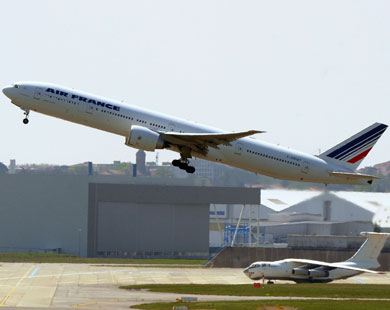The global airline industry on Tuesday pushed for a new scanning system at international airports to enhance security while reducing queues and intrusive searches for air travellers.
The International Air Transport Association (IATA) unveiled a so-called checkpoint of the future. The system channels passengers to one of three security lanes based on a risk assessment after a check of biometric identifiers in their travel documents, DPA reported.
"We have the ability to move to the biometric scanning and three-lane concept right now," IATA director general Giovanni Bisignani said.
"While some of the technology still needs to be developed, even by just re-purposing what we have today, we could see major changes in two or three years time," he said on the final day of IATA's annual general meeting in Singapore.
Global airlines spent 7.4 billion dollars a year on security, he said, and urged governments to work together with the industry to keep air travel safe.
Bisignani said passengers should be able to get from curb to boarding gate with dignity, "without stopping, stripping or unpacking, and certainly not groping."
According to IATA's concept of the future checkpoint, most air passengers would pass the security lane for normal screening after their passports had been checked.
Passengers for whom less information was available and who were deemed to be an elevated risk, would have an additional level of screening, it said.
Known travellers who had completed background checks with government authorities would enjoy expedited access through a third channel, it said.
The meeting of IATA, which represents some 230 airlines comprising 93 per cent of the global air traffic, brings together more than 700 industry leaders.






